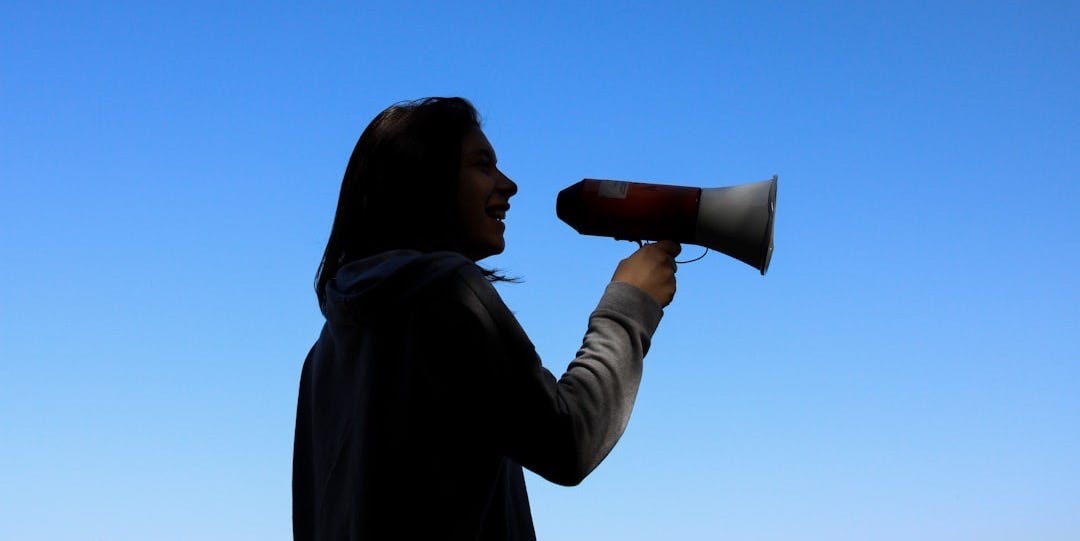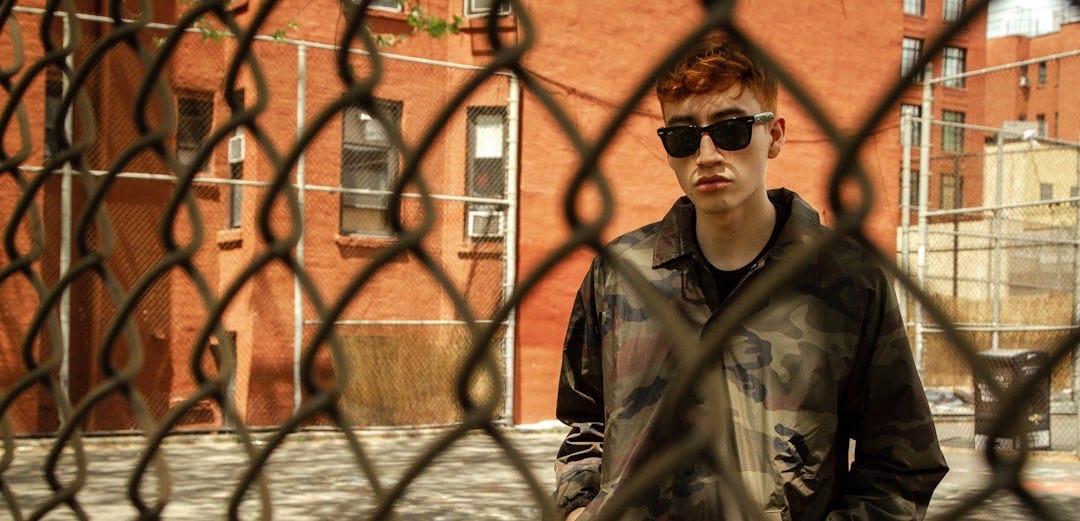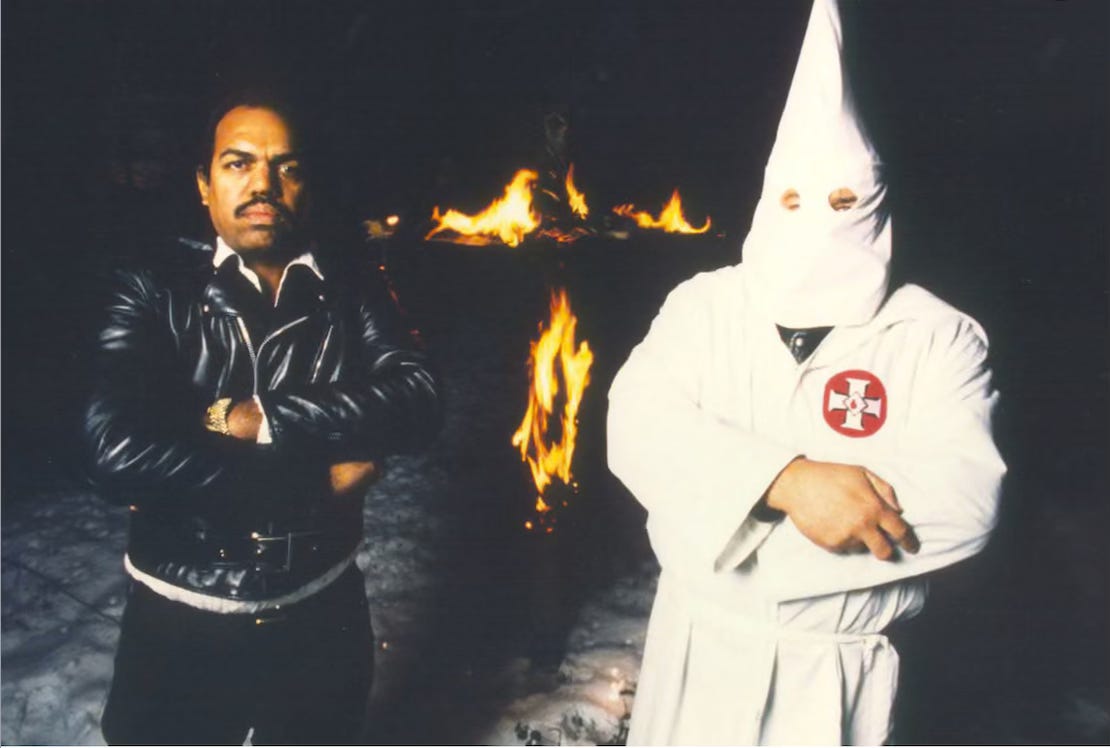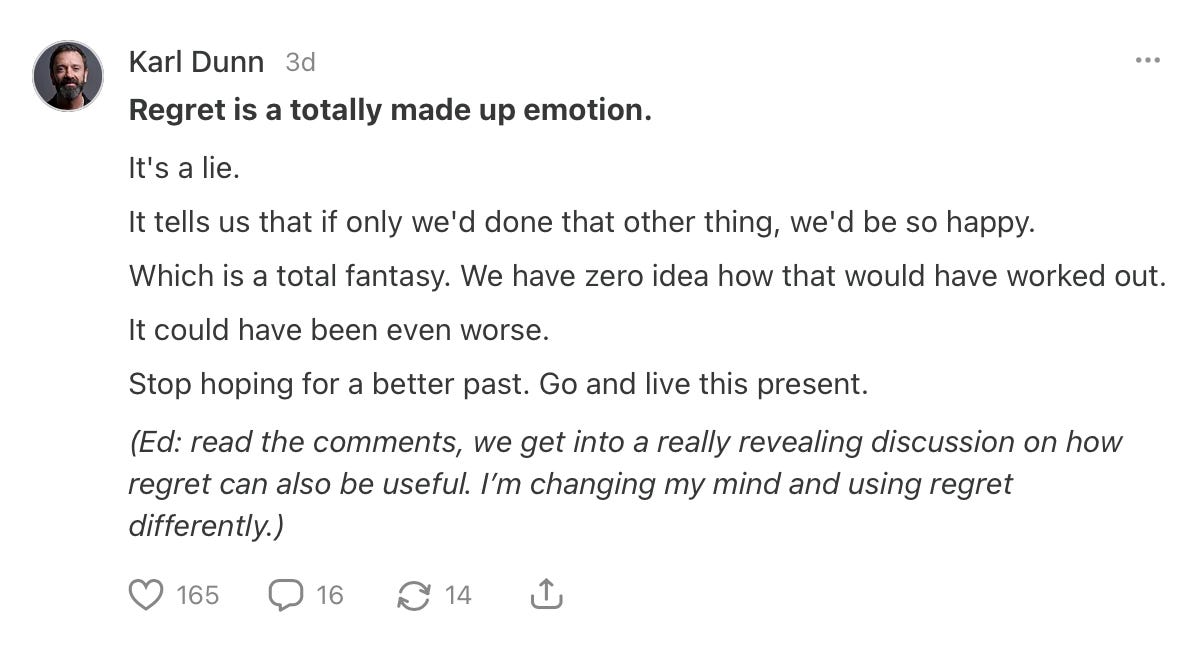Opinions: We're Not As Right As We Think We Are - Undividing #16
Plus Regrets Revisited, And Hope Rides A Phoenix.
Welcome to Undividing where we are reconnecting a divided world
Hey there everyone,
This week we’re going to look at Opinions. I’ve had this one in the drafts folder for a while, unsure of how I wanted to write this. And what the whole meta-point of it was.
Then I read this piece by
that wove it all together.I can’t think of a better summation of what it is to be Undividing—not looking for a way out, or picking a side because we think we only have two options.
But the middle is also a place where we have to be ready to re-examine our opinions and figure out how to work with other people’s. When we look around these days folks are clinging to their opinions like life rafts, or using them as bludgeons against others.
In Undividing #16 we’re diving into:
Undividing Our World - Opinions. Where they come from, how they change, and putting our own under a microscope.
Undividing Ourselves - Regrets revisited, and my regrets about what I wrote about it last week.
Undividing Extras - Hope is no pushover, it’s the phoenix you ride.
Let’s get undividing!
Undividing Our World: Opinions, Opinions, Opinions.

Years ago I was walking to work in Tokyo through Yoyogi Park when I was stopped by a person who was witnessing on behalf of his religion. I want to say I have enormous respect for anyone who witnesses on behalf of their beliefs. It takes courage and conviction to stand in public, and strike up conversations with strangers, to covert them. I’ve never done it, I don’t know if that’s in me. I tip my hat.
However he asked me if I believed in an absolute truth, and I said, no, that I thought all truth was relative.
He responded with the H2O idea - that if you take two atoms of hydrogen and one of oxygen, it makes water.
But after a conversation about it, we arrived at an interesting point. That sure, here in Tokyo in Autumn, H2O is water. But in the tropics, it’s stream. In northern countries it becomes snow, and further north, ice.
But then we all think we have the absolute truth because it’s what we see around us. That’s all the evidence we need. So we go to war with other countries who say H2O is steam, ice, or snow, because that’s a fundamental attack on our belief system, on our absolute truth.
The irony being, we’re all correct.
That was a friendly, interactive conversation between two people who in our own ways, we’re sitting somewhere in the middle. But that’s not at all what the world is looking like these days. As you all know.
Opinions are weapons in our arsenal of how we dehumanise others - you believe something different, you’re an idiot, you don’t deserve as much as I do. Which takes the same forms these days as it always has - less rights, access, protection, and trust.
So let’s get into opinions, starting with, where do they even come from?
Where do opinions come from? Not just from us…
We like to think our opinions are our own, built from logic, experience, and careful thought. But the truth is, most of them start somewhere else.
We inherit a lot of them. Family, culture, religion, and geography all influence our beliefs before we even have the ability to question them. They just are. And based on what we see and hear around us. A 2024 article in The Guardian discusses how early socialization plays a massive role in shaping, in the case of this article, political beliefs but the logic carries for opinions on anything.
Social environment, clearly, is one of the most powerful shapers of people’s politics. Political values and beliefs can emerge in early life… But political ideology continues to evolve with education and into adulthood as family influence declines… Researchers have not, and do not expect, to find a Tory gene or a Democrat gene… the relationship with party allegiance is far more complex, Edwards said. As he points out, extraordinarily intelligent people are found on both right and left.
We’re often tempted to think of people with wildly different ideas to us as lower in IQ. However, that’s just not true. And amazingly, people with higher IQs can often be the most resistant to changing their minds. Intelligence, oddly, can be the barrier to freer thinking.
As we get older we start absorbing opinions. We’re all very familiar with the echo-chamber effect where we absorb the opinions of influencers who have their (usually hot) takes on a piece of news or issue. Our opinion is formed from their opinion, not the actual event. And in our bubbles where we mostly hear opinions that reinforce our own, it’s easy to believe we’re right and others are wrong.
But it’s from here where it gets really interesting. Because once we form an opinion, our brain works hard to protect it. This is called confirmation bias—the focus on information that supports what we already believe while ignoring what contradicts it.
Changing an opinion isn’t easy. It takes more than facts—it takes the right conditions.
No one changes their mind because they lost an argument
People change their minds when they experience something firsthand. Research shows that people who meet and interact with individuals from marginalized groups often shift their views more than those who simply read about social issues. You can read the paper here from the American Psychological Association.
But a far more incredible read is about the African-Amercan man Daryl Davis, a successful musician who befriended members of the Klu Klux Klan. In this article from the Guardian (no paywall) Davis relates the tale of how his friendships with these men, caused over 200 members of the Klan to resign from the group:
You don’t change people’s minds; they do, in their time. It’s called the persuasion paradox. And It took Davis decades of friendship with some for them to “convert themselves, and that he merely provided the impetus for them to do so.”
But what I find the most interesting, is not just the bravery and patience and purpose of Davis, it’s the fact that senior ranking Klansmen liked him enough to invite him as their guest to rallies and gatherings. Which says even people so extreme, when they are listened to, are open to the idea of change.
Which challenges every belief I’ve ever had about people in the Klan. I’m not comfortable with this knowledge. But that doesn’t change the fact that it’s true.
Opinions, Identity & Why We Pick Sides.
Studies show that when people feel conflicted about their beliefs, they either adjust their thinking or double down on their stance to avoid discomfort. It feels like we see a lot more of the latter these days.

Why though? There’s three reasons I’ve got here. And this is the stuff that needs our understanding in these times we’re living in right now.
Uncertainty is uncomfortable. Picking a side provides a sense of stability and order in a chaotic world ie Earth 2025. Studies show that the desire for definite answers drives people to align with ideological groups that offer clear narratives. Look at any election in any country in the last ten years.
Social Belonging - Everyone wants to feel like they are a part of something. It’s what gives us identity. Whether it’s political, religious, or cultural, these groups often created around the same opinions and world outlook, provide us community, validation, and a sense of purpose.
Conflict Feels Like Survival - Opposing views feel like threats rather than disagreements. It’s why most people talk about conversations they’ve had as competitions they needed to survive with their opinions intact. Like it’s life or death.
Because opinions and picking sides is way more than simply intellectual—it’s emotional and psychological tied to identity, security, and belonging.
That’s why you can’t change that Uncle of yours’s mind. You think you’re presenting evidence. But to him you’re actually attacking his friend group, community, and his whole idea of self. It’s got very little to do with logic.
But the same goes for us too.
Taxi Drivers, Preachers, Prosecutors, and Politicians.
I hated this quote the first time I read it. It’s from a book called Taxi Driver Wisdom—two guys sat in the back of NYC taxis and wrote down all the wisdoms that the drivers said in the course of their conversations.
That quote is some tough love for sure. But live long enough, and you start to see how true it is. Opinions I would have fallen on my sword over, a year later, I’m like, oh did I actually think that?! And as for the things you hate, well, I started eating oysters in my 40s.
Sitting in the middle, like Beckett said in the intro, means that we’re ready to change our opinions. So we have to watch ourselves when we aren’t.
in his book Think Again had this to say:"As we think and talk, we often slip into the mindsets of three different professions: preachers, prosecutors, and politicians. In each of these modes, we take on a particular identity and use a distinct set of tools… we become so wrapped up in preaching that we’re right, prosecuting others for being wrong, and politicking for support, that we don't bother to rethink our own views."
He contrasts these with the scientist mindset:
“You’re paid to be constantly aware of the limits of your understanding. You’re expected to doubt what you know, be curious about what you don’t know and update your views based on new data.”
This isn’t the easiest thing to do. What’s true for that Uncle whose opinions drive us crazy is true for us too. It’s hard to shift. But it’s what we all have to be prepared to do. And I’ll leave you with Daryl Davis’s reason for why he spent 30 years in the company of Klan members.
“People must stop focusing on the symptoms of hate, that’s like putting a Band-Aid on cancer,” Davis says. “We’ve got to treat it down to the bone, which is ignorance. The cure for ignorance is education. You fix the ignorance, there’s nothing to fear. If there’s nothing to fear, there’s nothing to hate. If there’s nothing to hate, there’s nothing or no one to destroy.”
And in Undividing Ourselves, and Undividing Extras, I’ll take you through two examples where I changed my opinions this week on two topics I would have sworn blind I was right about.
A quick break…
There’s lot of ways you can support Undividing
If you like today’s post, like it ❤️ If you have a thought, comment 🗣️ And if you really love it, restack it! 🔄 - all the buttons are down below.
You can also Buy Me A Coffee. I post you back a personal 30 sec video for any donation, any size. (Ignore the BMAC amount prompts, you can enter any amount)
Or if you’re getting a lot out of Undividing, take out a paid subscription. Plus it supports Undividing readers without banking, who are houseless, vets, pensioners, and people in countries who can’t do foreign transactions.
You can also support by picking up a copy of my award-winning book How To Burn A Rainbow, the story of how my divorce set me off on a journey - a riches to rags rollercoaster from LA to Berlin where I had to lose it all to find myself.
Back to Undividing …
Undividing Ourselves: Remember Last Week’s Regrets?
In Undividing #15 from last week, I included a section of my book How To Burn A Rainbow that was a conversation between me and my brother about regrets. And some advice from him that saved my sanity at the time.
I was so blown away by the number of folks who wrote and commented about that section, that I felt emboldened to make a Note about it this week.
Here it is and here’s the link:
Readers had thoughts. Lots of them. Really good ones. And in the space of one comment thread, I changed my mind completely. But it wasn’t the funnest thing I’ve done. I mean, I wrote a book and put in print this strongly held idea I had about regret. It’s there publicly for all time.
But now I know I got it wrong. Or actually, only half right.
Sally C wrote “…But I also think regret has its place—it can teach us, guide us, and help us grow. The key is not to let it weigh us down but to use it as a tool for making better choices now. The past is done, but the present is still ours to shape.”
Unfortunately for my ego, Sally’s right.
even laid it out in steps:Jannik L pointed out that I was probably referring to shame, and Andy thought I was conflating it with rumination.
Ugh. Both right.
And Jody B pointed out the usefulness of regret for the same reasons as Sally and Margo, adding “That is very different from the kind you use to endlessly beat yourself up, which is indicative of other emotional issues.”
Bingo.
Well damn if there aren’t some really smart people on Substack. And if I ever do another reprint of my book, I’ll be sure to update the text.
Undividing Extra: And Hope Gets A Phoenix Ride.
I’ve never been a massive fan of hope. Hope to me has always felt passive, undirected, and like it’s waiting to be saved. It could be unresolved issues about being a gay man of my generation in a straight world; I grew up policing my own feelings around anything to do with vulnerability, ever watchful in case I gave myself away.
However
is someone I’ve started to read, and she wrote this fantastic piece called HOPE IS NOT A FRAGILE THING that completely change my mind. Especially as she’s a screenwriter like I was for 7 years in LA. And I could relate so strongly to the disappointments she’s lived. I love this quote:“Hope isn’t a denial of what is, but a belief that the current situation is not all that can be.”
And then proceeds to break down how wanting change turns into a wish, and when you add a plan and action, turns to hope. Hope has dirt under its nails.
What I used to call determination, I realise now was just hope with a plan and a horse to ride.
And that brings us to the end of Undividing #16.
Till Thursday when we do the next Emotions Diary, let’s move through this world undividing, and see what this planet can do.
Karl









I really like your format of writing- picking one vague topic and pulling it together. It’s like you’ve got a brain with ADhD but have been able to wrangle it towards a bigger point. This isn’t a judgement or slight it’s actually a compliment. I will keep reading your content and look into your book because of how your brain synthesizes Information.
Thank you for this. I firstly found myself thinking about the seat on the plane.
I have been an aisle seat bagger for sure. But I no longer do that. I sit in the middle….. but only when my partner is in the aisle seat! That doesn’t count as I know I can leap over him if I need to!
Such an interesting view and one I am still sitting with now!
I don’t avoid sitting in my own discomfort but I sure still avoid stranger discomfort.
One to ponder over a cuppa in the quiet sunshine.
Thanks for the opportunity to re think